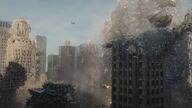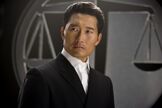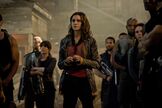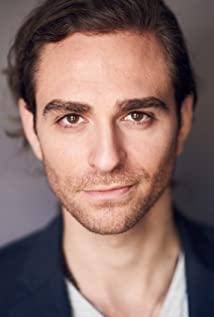Dystopian literature and cinema often establish a social order that is better than reality. Whether this order comes from cutting-edge technology or a unique time and space background is never the point, it is just a premise, and "better than reality" is the biggest feature of this order. It is the responsibility of the protagonist (or rather the author) to argue against what the new order has left us, and to reflect on whether it is worth the sacrifice. "1984" sacrificed privacy and information transparency for group unity; "Brave New World" sacrificed mate choice for eugenic rates; compare the recent films "The Hunger Games" and "Heirs of Memory" (The Giver) sacrificed his personal freedom in pursuit of post-war survival.
Not so with the Divergent series.
The story takes place in Chicago after the future war. Human beings will be divided into five classes, each class has its own division of labor, and the boundaries are very strict. The five classes are: Erudite, Candor, Dauntless, Abnegation, and Amity. All teens are required to join their class before graduation by passing a screening as an adult. Classes must not be lightly overtaken, let alone give up. The Erudite faction has been in control of the political economy of the entire world for two hundred years, but they still want to take a step to annex the interests of the other four factions, and the war is about to start.
Isn't this the real world?
Divergent's class solidifies occupations, differentiates social circles, and creates discrimination between the two, which is so similar to reality because that's how the real world works.
The Erudite faction, the head of the parliament, is a matter of course, not because they have a blue-clothed female dictatorship, but because they sit on the parliament and control the education and judicial power of the whole country. One faction and one party lasted for two hundred years. Other parties have checked and balanced, this is completely the embryonic form of fascist politics, but I am surprised that they are only now starting to want to expand. The chaebol Candor faction should have the most reasonable way to sanction the Erudite faction, because they have a national trade network, which is equivalent to the national trade union assembly, and their economic strength is not a problem. They can fight a long-term war with the parliament at any time, but the Candor faction Under the commandment of "Candor faction can't lie", he dared not step out of the mine. The commandment not to lie is clearly meant to limit the size of the chaebol of the Candor faction. Please, a businessman who is sweating all over when he lies, how can he do business? I've never seen it in my life! The founder obviously asked the chaebols not to be involved in politics to issue this commandment.
The remaining three factions have no voice over the entire economic and political structure controlled by the Erudite and Candor factions. The non-profit organization Abnegation, in the name of national labor insurance, has as few resources as private individuals. It sends out the resources sent by Candor to try to divide it evenly among the four factions. Shouting and shouting, it can be seen that this faction is of no help to the Central Council except for the lack of welfare. Not to mention the Amity faction, it is a group of blue-collar workers, or a group of un-union blue-collar workers who can’t compete with their brains. The Erudite faction didn’t think they were human but ruffians from the very beginning. The military Dauntless faction has the strongest boys and girls, and also has militarized training. It is very likely to use violence to overthrow the regime, but the Erudite faction has used a great trick to attack them from close range and far away. In the second episode, Peter became the gendarmerie boss), and if he wanted to resist the five major classes, he would directly call him a traitor and shoot him directly, making the Dauntless faction a thug camp for the parliament and the chaebol. As long as the characters of the other three factions appear, they are either shabby or outdated, and they have a low-class taste everywhere, which also strengthens the entire film's intention to create material conditions in which other classes are dominated by the upper echelons.
A group of people with power and wealth have come to the top of society, monopolizing politics and economics, and causing many problems for all citizens. Isn't this the most typical problem that occurs in real society?
Divergent attempts to make these five classes look like traditional dystopian stories, special regimes facilitated by technologies or time and space contexts that reality cannot do; but in fact, these technologies and contexts are realistic , and has even reappeared. In reality, we don't have high-tech sero-tests, but compulsory education can still tell the difference; we don't have class leaders, but trade unions can do it; we don't have a decree-enforced lifelong class, but our society has long been vaguely rich The status quo of the generation of power and power.
Even the crises that come in the story are not uncommon in history. When the fascist parliament is sitting on politics and public opinion, and the chaebols are unable to fight against it, these fascists turn into cruel officials, discriminate against other races and persecute others. This is the law of dictatorship, and even history. public opinion. So I ask: what is the utopia about this story? How is it different from reality?
Since "Divergent" is a disguised reality, it has all the loopholes that will appear in the real society (discrimination, dictatorship, wealth gap), it has none of the benefits brought by high technology, and everything is not better than reality, How can we viewers be surprised that this social order will not go wrong? The reality is that this utopia is doomed to collapse without the need for any big blue-clothed conspirators or coffee-colored boxes left by founders. This is stupid. The utopia of "The Hunger Games" brought at least a short-lived co-government, but the utopia of "Divergent" directly tells the audience a truth we know when we turn on the TV, and then pretends to be alarmed.
The movie itself is good. The story is neatly told, and many of the fighting scenes are accurate. In the second episode, there are even a few special effects shots that are full of shock. It can be seen that the post-production team has a good concept of the rhythm of photography, and the overall level has reached the commercial calculation blockbuster. pattern. However, the inherent story loopholes in the story setting continue to collapse.
In the first episode, the heroine is persecuted more and more because she is a Divergent (a kind of person who can adapt to five classes at the same time, in reality, it is probably a top student), and then gets involved in the Erudite faction and makes the whole city bloody. Coup Tour. In the second episode "The Divergent Series: Insurgent" (The Divergent Series: Insurgent), the heroine and the hero are living a journey of exile, all the way to see that the system of the five major classes is finally about to collapse because of the crap division of labor. The biggest hesitation of the hero and heroine and her partners in this episode is whether to overthrow the division of labor of the entire social class; however, in the eyes of the audience, this utopia has never brought any benefits that are better than the present, so there is no reason to hesitate Don't knock it down? baffling.
Nor does the story address a more fundamental logical question: how did the Four Factions only now discover that this class is overwhelmingly beneficial to Erudite? Politics and education are in the hands of others, can you not let the other party feel like a fairy? Of course, the ending doesn't explain it at all, other than the message that a third episode is definitely going to be filmed.
The audience can only guess, and perhaps this is the biggest purpose of the five factions classification: to pass the IQ test and throw all the latent fools into any place other than the Erudite faction. Thinking about it this way, it's not surprising that these people have been servants and foot-washing maids for two hundred years.
View more about The Divergent Series: Insurgent reviews











